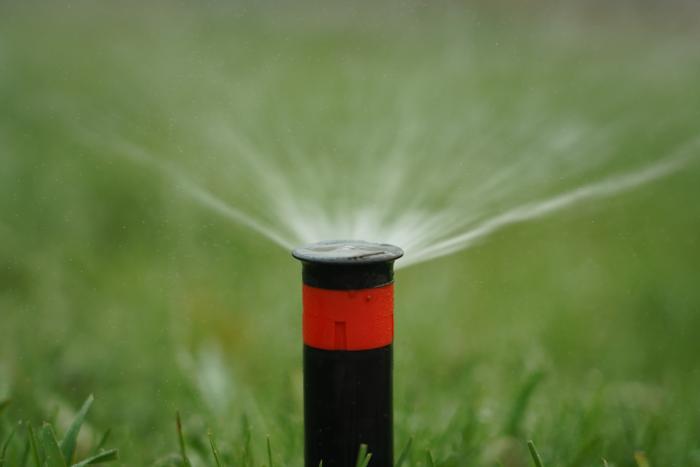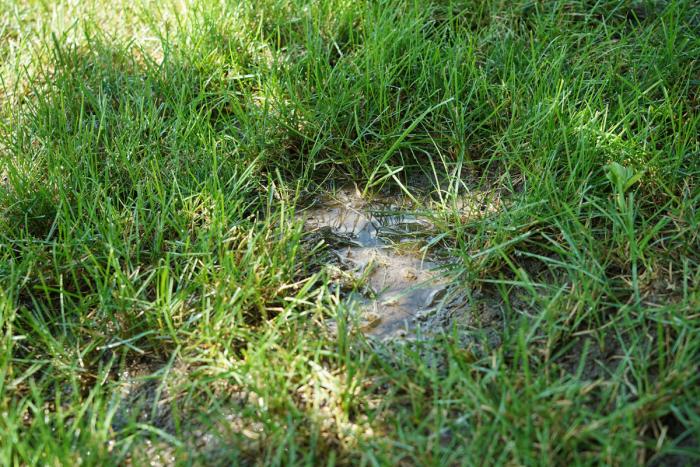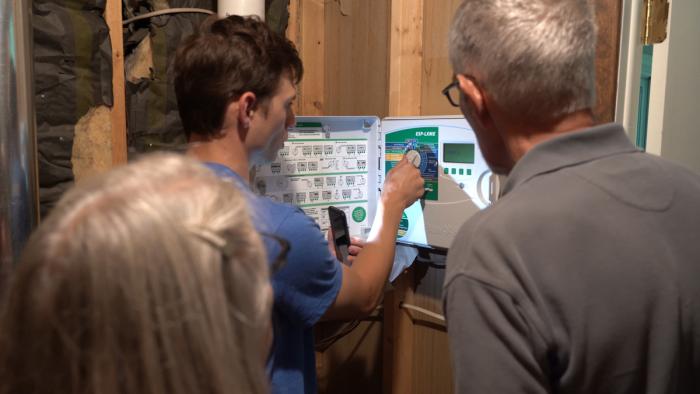Be smart with your sprinklers — 'cycle and soak'
This story is part of Denver Water’s TAP series in partnership with the Associated Landscape Contractors of Colorado on water-wise landscaping practices. Subscribe to TAP to make sure you catch the rest of the series.
Cycle and soak. It’s a simple lawn watering technique that can greatly improve the health of your grass without using more water — and possibly using less water.
The technique involves splitting the total amount of time you run your sprinkler system zones on a watering day into two or three cycles, instead of running the zone all at once.
Cycle and soak is useful because the soil at many homes in Denver Water’s service area has a high clay content, which means the soil can only absorb so much water at a time.
Once the soil is saturated, additional water from the sprinkler will simply start puddling, or run off and go down the sidewalk and onto the street. Cycle and soak is also a great technique if your grass is on a slope or a hill.
Lyle Fair, a landscape professional with the Associated Landscape Contractors of Colorado, said cycle and soak is a tried-and-true technique to maximize water use during irrigation season.
“If you are running a sprinkler zone for 14 minutes, the ground likely can’t absorb all that water at once, so the last couple of minutes of that run time is a waste of water,” Fair said.
“Splitting up the sprinkler zone run times on a watering day puts the same amount of water down — or possibly less. But does it in a more efficient manner.”
Send this water-wise tip to a friend who needs it. (Get this tip from a friend? Get more by signing up for the free, weekly TAP email.)
To maximize efficiency, split up each zone’s overall watering time into multiple sessions.
For example, a zone’s 14-minute run time may be divided into two, seven-minute watering sessions. Or if you are running a zone for 18 minutes, you could split that into three, six-minute cycles.
After the zone has run, go to the rest of the zones. This will give the lawn covered by the first zone time to absorb the water. Try to wait about one hour in between run times.
Once all the zones have run, then have a second start time programmed to irrigate for the remaining seven minutes to achieve the total 14-minute run time for each zone.
Fair said that when you first try the cycle and soak technique, make sure to watch each zone. Check it to make sure water isn’t puddling or running onto the sidewalk. If that happens, reduce the run time on the zone.
It’s also important to adjust the times throughout the watering season as lawns need less water in May and September than in July and August.
Learn how to save water inside and out with denverwater.org/BestPractices.
For clay soils, Colorado State University Extension recommends sprinklers with spray heads be run no more than eight minutes at a time and having at least 30 minutes between cycles to allow water to soak into the ground.
For more information on cycle and soak techniques, check out the Denver Water’s annual summer watering rules and CSU Extension’s efficient landscaping tips.
You also can hire a professional from the ALCC to do a full landscape consultation. The cost upfront pays off over time and will help improve the look of your yard, Fair said.
“Outdoor water use accounts for roughly 40% of Denver Water’s overall water consumption, so it’s critical that our customers use water wisely,” said Austin Krcmarik, water demand and efficiency planner at Denver Water.
“Using the cycle and soak watering technique and fixing problems with your irrigation system can make a big difference in helping protect our water resources.”
The Associated Landscape Contractors of Colorado is the premier professional organization for Colorado’s landscape companies. ALCC promotes the responsible use of water and other natural resources, and provides educational and industry certification opportunities to Colorado’s landscape professionals. ALCC’s Sustainable Landscape Management and Community initiative promotes sustainable maintenance practices that reduce water use and loss of plant life.
For more information on ALCC or to find a landscape professional, go to www.alcc.com or call 303-757-5611.




